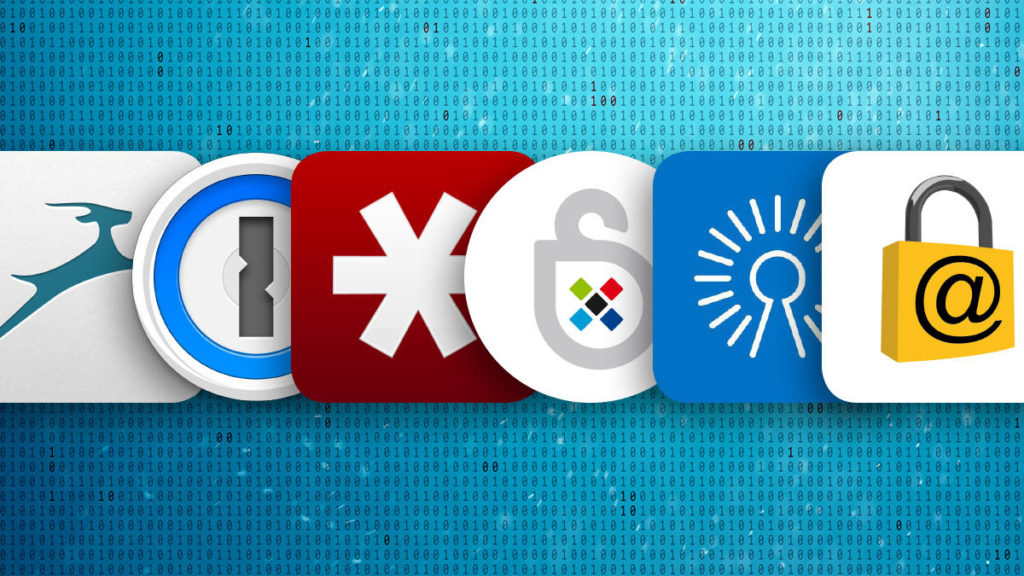Whether it is a simple dating site, sports betting site, news blog, social media or a streaming site, nearly every website you visit today will request that you sign up by creating a username and password. Having to memorize different passwords for multiple sites can be a tough and almost impossible thing to do.
Although some people use simple passwords that are easy to remember, others use memorize one simple password and use it for every platform. While these are nice hacks, using simple passwords makes you vulnerable to cyber-attacks.
This is where password managers come in. With a password manager, you don’t have to memorize different passwords for different websites.
You should also note that while some of the password managers listed below offer free plans, most will lock you to just one device if you don’t subscribe to the paid plan.
How a password manager works
When you install a password manager, it installs as a plug-in in your browser and helps you handle password capture when you log in to secure websites on your browser. Whenever you return to that website, it offers an automatic log in. some password managers offer a browser toolbar menu of saved logins, so you can go straight to a saved site and automatically log in.
Most password managers will warn you of a weak and duplicate password. Some even offer help with the update process. Advanced (paid) password managers automate the password-change process for its users.
you might want to read: What makes a password “strong”?
Password managers
Dashlane
Dashlane provides a simple and secure way to manage your passwords. The highlight feature of Dashlane is its bulk password changer. It can reset hundreds of your passwords at once, saving you time in the event of a major cyber breach. Dashlane also has a scanner that goes through your email inbox on Android and other OS to find online accounts you may have forgotten about.
Key points
- Available on Windows, Mac, iOS, Android, Linux, Chrome OS, watchOS. Also available as browser plug-ins on Chrome, Firefox, IE, Safari, Edge.
- It Offers limited free plan (50 passwords on one device)
- It also has a paid plan which is quite expensive; $59.88 per year
1password
1password gives you access to all your accounts with just one master password. Although on Macs, you can use Touch ID to gain access to your 1Password account, for iOS devices, you can use Face ID too. It offers an individual subscription plan that runs $36 a year, and it comes with 1GB for document storage and it offers you two-factor authentication for additional protection. Also, there is a travel mode which lets you remove your sensitive data from your device when you travel and then have them restored with one click when you return.
Key points
- 1password offers a trial version
- It works on Windows, MacOS, Linux, Chrome OS, Android and IOS. It also works as Browser extensions for Chrome, Firefox, Safari, Edge and Opera.
Lastpass
Asides the fact that lastpass gives you the ability to store passwords, user log-in info and credentials and sync all of it wherever you want – mobile, browsers and desktop, it allows you share your login item with another person.
Key points
- Available on Windows, Mac, iOS, Android, Linux, Chrome OS, Windows Phone, watchOS. Works as a browser extension for Chrome, Firefox, IE, Safari, Edge, Maxthon and Opera.
- Biometric login: Face ID, Touch ID on iOS & macOS, most Android & Windows fingerprint readers.
- It’s one-year plan ($36), offers you the Premium version to share passwords, logins, trusted emergency contacts, multifactor authentication and fingerprint and 1GB of encrypted storage. It also has another annual paid plan ($48) which gives you access to sign up for the Families plan that gives you up to six individual accounts and shared folders.
Bitwarden
The major highlight of Bitwarden, asides the fact that it is an open source software password manager, is that it can store and autofill passwords across any device and most browsers for free – including Tor browser.
Key points
- Although it offers a free version, with Its paid plan ($10 a year), you can add 1GB of encrypted file storage.
- Works with Windows, MacOS, Linux, Android, IOS operating systems. Browser extensions for Chrome, Firefox, Safari, Edge, Opera, Vivaldi, Brave and Tor Browser.
Enpass
If you make use of your desktop computer, good news, Enpass has a free desktop version. The Linux OS version is also entirely free, but It has a more limited one for Android users limited to only 20 passwords. And to use its premium software on Windows, Mac, Android or iOS, you must pay a one-time flat fee of $11.99 for each platform. There are no recurring subscription fees.
Key points
- No recurring subscription fees
- Even though it is free, it has Limited features & syncing options
- It works on Windows, Mac, iOS, Android, Linux, Chrome OS
Keeper
Keeper offers the cheapest subscription plan of all the password managers we’ve talked about. With $25.49 per year for the premium service, you get a fast and full-featured password manager with a robust web interface, stores files and the best security of any password manager.
Key points
- It works on Windows, Mac, iOS, Android, Linux, Chrome OS, Windows Phone, Kindle, BlackBerry devices.
- Browser plugins: Chrome, Firefox, IE, Safari, Edge
- It has two-factor authentication
- Biometric login: Face ID, Touch ID on iOS & macOS, Windows Hello and works with most Android fingerprint readers
Zoho Vault
Zoho Vault makes the password manager free for individual use, while the group plans that can be used by families start at $12 per user per annum. Unlike a few others, Zoho Vault will do the syncing for you using its own servers, and it does not charge a fee to sync all your laptop and mobile devices.
Key points
- Its free plan offers you all the features you need.
- Zoho Vault is available on Windows, Mac, iOS, Android, Linux, Windows Phone. Browser plug-ins on Chrome, Firefox, Safari.
Icloud keychain
The iCloud Keychain works for Mac and IOS users. It gives you access to your Safari website usernames and passwords, credit card information and Wi-Fi network information from your Mac and iOS devices. But if you Make use of a Windows or Android device or you use the Chrome, Opera or Firefox browser, you, unfortunately, can’t make use of the iCloud keychain.
A good password should be a long combination of capital and lowercase letters, numbers, punctuation and other nonalphanumeric characters. These combinations will make it difficult for others to guess.
Featured Image: Pcworld.com
Discover more from Dignited
Subscribe to get the latest posts sent to your email.












